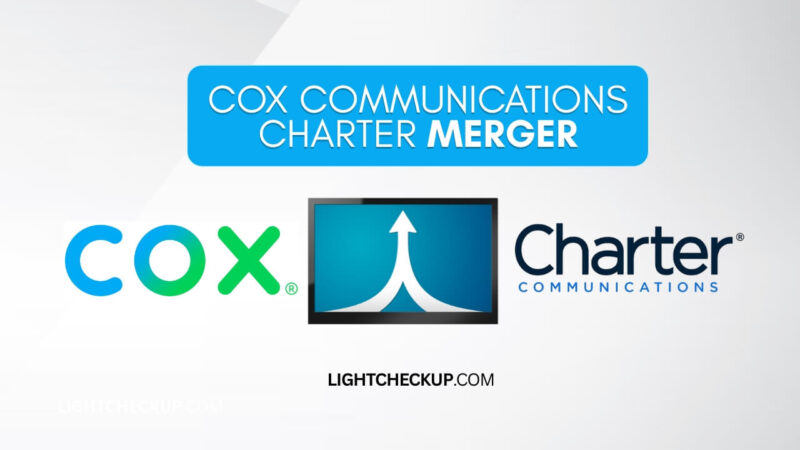The Cox Communications Charter merger is a big deal for many reasons. This merger could affect millions of American households.
Announced on May 16, 2025, this $34.5 billion merger between Cox Communications and Charter Communications will form the nation’s largest cable company.
There is no requirement that you own Cox Internet, own Charter stock (CHTR), or have a general interest in Charter Cox.
What’s up with the Cox Communications Charter merger?
Let’s start with the basics. Charter Communications, known for its Spectrum brand, is joining forces with Cox Communications. The plan? Cox will be acquired from Charter for $34.5 billion.
The combined Cox Communications Charter merger company will serve approximately 38 million customers once the dust settles. So, it competes with Comcast as the country’s top cable provider.
The startup company will carry the Cox Communications name but use Charter’s Spectrum branding for consumer services. The newly formed entity will also be owned with Cox Enterprises, Cox’s parent company.
This Charter Cox purchase is more than just about size; it’s about staying competitive in a fast-changing industry.
Why are Cox and Charter merging?

The cable world has changed. The mobile carrier market and streaming giants are eating into Charter and Cox’s market share.
The company expects to save $500 million annually within three years through cost savings from synergies. We may see improvements in customer service through upgraded services or an improved pricing plan in the future.
They say the Cox Charter merger makes them a more aggressive competitor. They hint at plans to bundle services or roll out updated features to keep you hooked.
How Will This Affect Customers?
Cox Communications Charter merger customers may wonder, “What’s in it for me? ”
Here’s what we know so far:
- The good news: Charter promises to improve customer service in the U.S. and create new jobs. Their “simple and transparent pricing” model also touts no annual contracts and no credit for outages longer than 2 hours.
The combination of the two companies could also result in faster internet and better TV packages. - The unknowns: It’s too early to say how pricing and service availability will shift. It is feared that less competition will result in higher costs, but companies insist on delivering value.
For now, the Charter Cox merger is more about potential than promises, but it’s worth watching how it plays out.
Will the government approve it?
This kind of merger needs regulatory approval from the Federal Communications Commission (FCC) and the Federal Trade Commission (FTC).
The Cox Charter deal could face pushback over antitrust concerns since it creates such a dominant player.
Charter and Cox pitch it as a win for America, highlighting job creation and improved service.
The approval could come as soon as mid-2026, but regulators or competitors may object.
What Does This Mean for the Cable Industry?
The Charter and Cox merger isn’t just about these two companies—it could spark a chain reaction. The cord-cutting trend could lead to cable providers merging or being acquired.
This could have a significant impact on the competitive environment, innovation, and pricing of the industry.
Charter stock has jumped 22% in the past month on merger buzz. On the other hand, its long-term value will depend on how well the merged company performs over the long term.
Read Also: How to Claim Your Lopez Voice Assistant Settlement Before Apple’s Siri-Closing Date?
Final thoughts
The Cox Communications Charter merger is a merger of two cable heavyweights that could change the way we watch and surf TV.
There are exciting possibilities – like better service – and valid questions about what it means for choice and cost for Cox and Charter customers.
You might be rooting for the Charter Cox merger or just keeping an eye on it, this one isn’t over yet.








